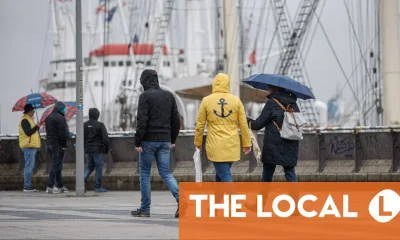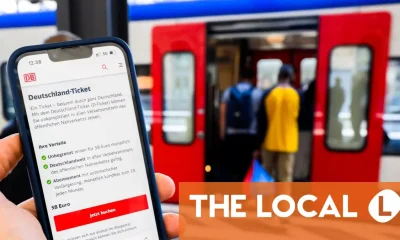The Berlin Half Marathon is set for Sunday, April 6th, and this year runners can expect to battle an unseasonably cold bout of weather during the event.
But the race, known for its festive atmosphere and enthusiastic crowds, is sure to be an experience that participants won’t forget.
The capital city’s biggest annual races can be quite difficult to sign-up for. Registration for the Berlin Marathon, for example, takes place about a year in advance with participants selected from a lottery system.
If you do want to join either the half- or marathon in Berlin next year, one option for doing so is to join a charity fundraiser, in which you raise money for a non-profit in exchange for seducing a spot on their race team. You can find information about participating non-profits on the race event webpages.
But if you simply want to run a 5K, 10K, half- or marathon event in Germany, there are plenty of other events to be found, and many of the smaller races can be significantly easier and cheaper to sign-up for.
What’s more is joining one gives you a great reason to visit, and run through, a part of Germany that you haven’t seen.
The country’s next largest marathons, in terms of number of finishers, include the Haspa Marathon in Hamburg, the Munich Marathon, and the Cologne Marathon.
Berlin’s BMW Marathon is among the world’s ‘Big-5’ and attracts tens of thousands of participants each year. Photo: picture alliance/dpa | Paul Zinken
Here are some of Germany’s other upcoming races in 2025:
Advertisement
Upcoming spring-time marathons
Coming up immediately, the Deutsche Weinstraße (German wine-road) Marathon is set to race through wine country in the Rhineland Palatinate on April 12th.
And in the east on the 13th, the Leipzig Marathon takes place.
On April 27th, is Hamburg’s Haspa Marathon. But for something greener, the Spreewald Marathon, on the same date, will see runners racing along the region’s waterways and canals, and finishers can expect their medal in the shape of a cucumber.
On May 25th, runners and wine lovers may converge in the Franconian city of Würzburg. The course here winds through the city-centre and along stretches of the Main River.
Another nice race in northern Bavaria in the Metropolmarathon, which connects the cities of Fürth and Nuremberg. This year the race is set for June 3rd.
Germany’s more beautiful races
For those willing to get perhaps a bit off the beaten path, Germany’s forests, mountains, rivers and castles make for some awe-inspiring scenery along some of the lesser-known race routes.
Advertisement
The Royal Castles Marathon Füssen offers nearly continuous views of the Alps and runs along several lakes. The race is scheduled for the 26th of July this year.
There’s also the Monschau Marathon through the beautiful landscape of the Eifel-High Fens Nature Park taking place on August 9th and 10th.
For runners seeking a challenge, Runner’s World suggests that the Black Forest Marathon is known to be one of the most challenging and beautiful natural routes in the world. Interestingly, the Schwarzwald race also happens to be the world’s oldest women’s marathon. The majority of the course is on forest paths, and takes place on October 12th.
For more extensive lists of Germany’s long-distance footraces check MarathonGuide.com or WorldsMarathons.com





































